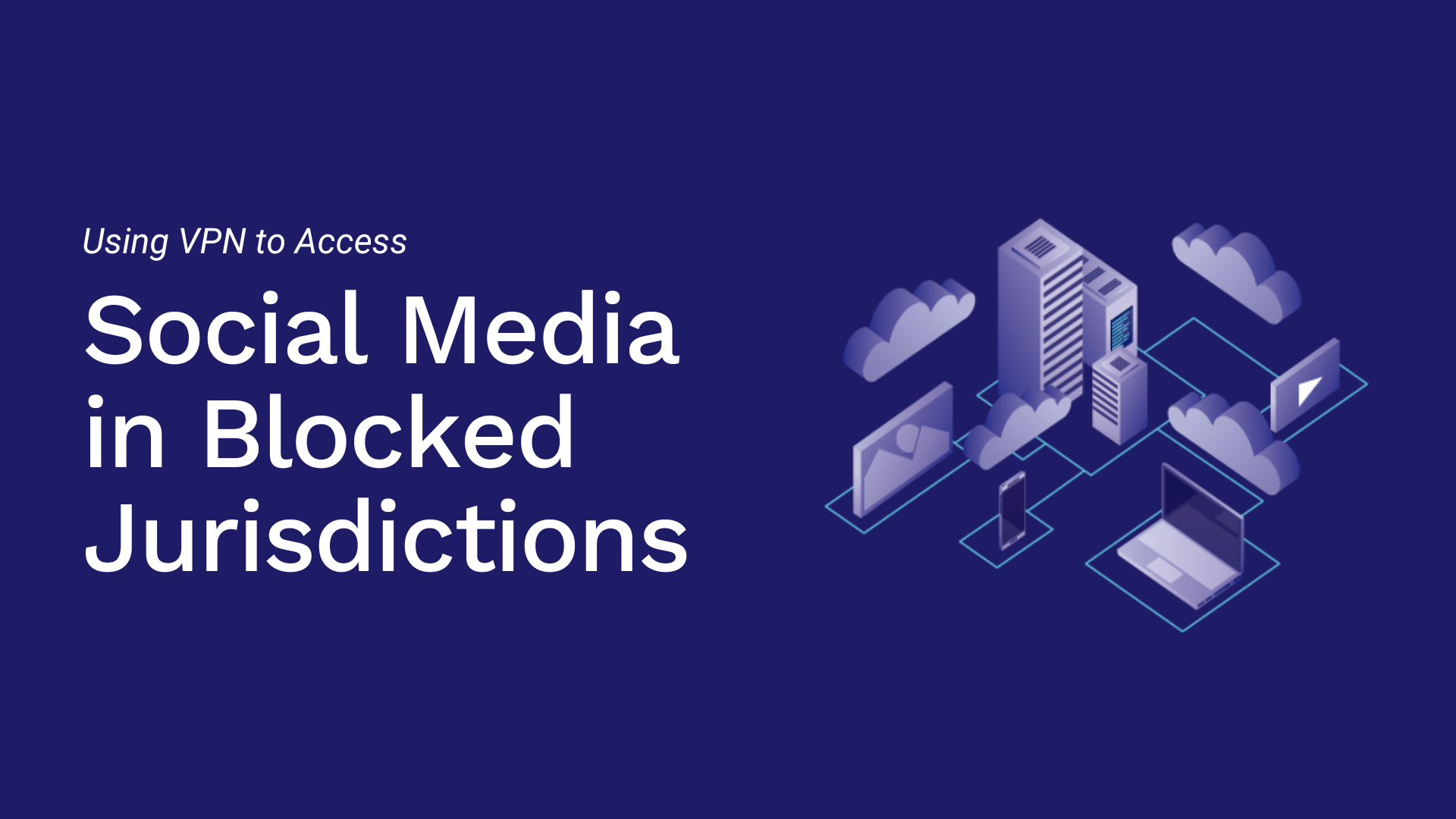
Using VPN to
Access Social Media in Blocked Jurisdictions
Social media platforms like Facebook, Instagram, Twitter, and TikTok have revolutionized communication, hence making it easier for people to share ideas, connect globally, and stay informed. However, in many countries, governments impose restrictions on social media access, either temporarily during political unrest or permanently to maintain strict control over information.
A Virtual Private Network (VPN) is a powerful tool for bypassing these restrictions, enabling users to unblock social media platforms securely and freely. In this article, we’ll explore how to use VPN to Access Social Media, the benefits they provide, and the best practices for their use in restrictive environments.
Examples of Blocked Apps:
WhatsApp and Facebook Messenger: Frequently blocked during political unrest or in countries with tight communication controls (e.g., Iran, China).
Skype and Zoom: Banned in certain regions due to concerns over VoIP services bypassing local telecoms.
Telegram: Often targeted for its encrypted messaging capabilities (e.g., Russia, Iran).
Why Social Media Is Blocked in Some Jurisdictions
Governments block social media platforms for several reasons:
- Control Over Information: To suppress dissent, block criticism, or limit the spread of ideas that challenge government authority.
- Political Unrest: During protests or political crises, platforms are often blocked to disrupt organization and communication among activists.
- Censorship of Content: Social media often hosts content deemed sensitive or harmful by certain governments.
- Cultural or Religious Concerns: In some cases, platforms are restricted due to content that conflicts with local values or norms.
Examples of Social Media Restrictions
- China: Blocks Facebook, Instagram, Twitter, and YouTube, favoring local alternatives like WeChat and Weibo.
- Iran: Heavily restricts access to Instagram, WhatsApp, and Telegram.
- Myanmar: Temporarily banned Facebook during political unrest to prevent protest organization.
- Russia: Blocked Facebook and Twitter following its invasion of Ukraine to control narratives about the conflict.
How VPNs Enable Access to Social Media
A VPN helps users bypass these restrictions by:
1. Changing IP Address
- VPNs reroute your internet traffic through servers in other countries, assigning you an IP address from the chosen server's location.
- This makes it appear as though you’re accessing the internet from a region where social media is not restricted.
2. Encrypting Data
- VPNs encrypt your internet traffic, making it unreadable to government firewalls, ISPs, or other monitoring systems.
- This allows you to bypass content filters and censorship mechanisms.
3. Masking VPN Traffic
- Advanced VPNs use obfuscation technology to disguise VPN traffic as regular internet activity, helping users evade detection in regions where VPNs are also restricted.
Benefits of Using VPNs to Access Social Media
1. Freedom of Expression
VPNs enable users to access social media platforms, allowing them to voice opinions, share ideas, and engage in discussions without censorship.
2. Connection with the World
In blocked jurisdictions, social media provides a vital link to friends, family, and global news. VPNs ensure that this connection remains uninterrupted.
3. Secure Communication
Social media often serves as a primary communication tool. By encrypting traffic, VPNs protect user data from surveillance and potential misuse.
4. Access to Real-Time Information
During crises, social media platforms provide real-time updates and on-the-ground insights. VPNs grant access to these critical sources of information.
5. Professional and Business Use
Many businesses rely on social media for marketing, customer engagement, and branding. VPNs enable professionals to manage their accounts and campaigns even in restricted regions.
Best Practices for Using VPNs to Access Social Media
1. Choose a Reliable VPN Provider
Opt for a VPN with robust encryption, a no-logs policy, and servers in multiple countries.
2. Use Obfuscation Features
In regions where VPNs are detected and blocked, use a VPN with obfuscation technology to disguise your connection.
3. Enable a Kill Switch
A kill switch ensures that your internet connection is automatically severed if the VPN disconnects, preventing unencrypted data from being exposed.
4. Test Your VPN Before Travel
If you’re traveling to a restrictive region, set up and test your VPN beforehand, as VPN websites may also be blocked.
5. Avoid Free VPNs
Free VPNs often lack essential security features, may log user data, and are more easily blocked by government firewalls.
How VPNs Empower Access to Social Media in Restricted Regions
1. Political Activism
Activists in restricted regions use VPNs to access social media platforms for organizing protests, sharing information, and connecting with global supporters.
2. Journalism and Reporting
Journalists rely on VPNs to report from countries where social media is restricted, enabling them to share stories and updates with the outside world.
3. International Travelers
Tourists and business travelers often face unexpected social media restrictions. VPNs allow them to stay connected and manage their online presence.
4. Educational Use
Students and researchers in blocked regions use VPNs to access educational resources and collaborate on social media platforms.
Conclusion
In regions where social media platforms are blocked, VPNs serve as a vital tool for maintaining freedom of communication and access to information. By encrypting traffic and masking location, VPNs empower users to overcome censorship, connect globally, exercise their right to free expression and consequently to access Social Media.
Selecting the right VPN, following best practices, and staying informed about local regulations ensures secure and effective access to social media, even in the most restricted jurisdictions. With a reliable VPN, the global digital community remains within reach, regardless of geographical or political barriers.

 Cart is empty
Cart is empty